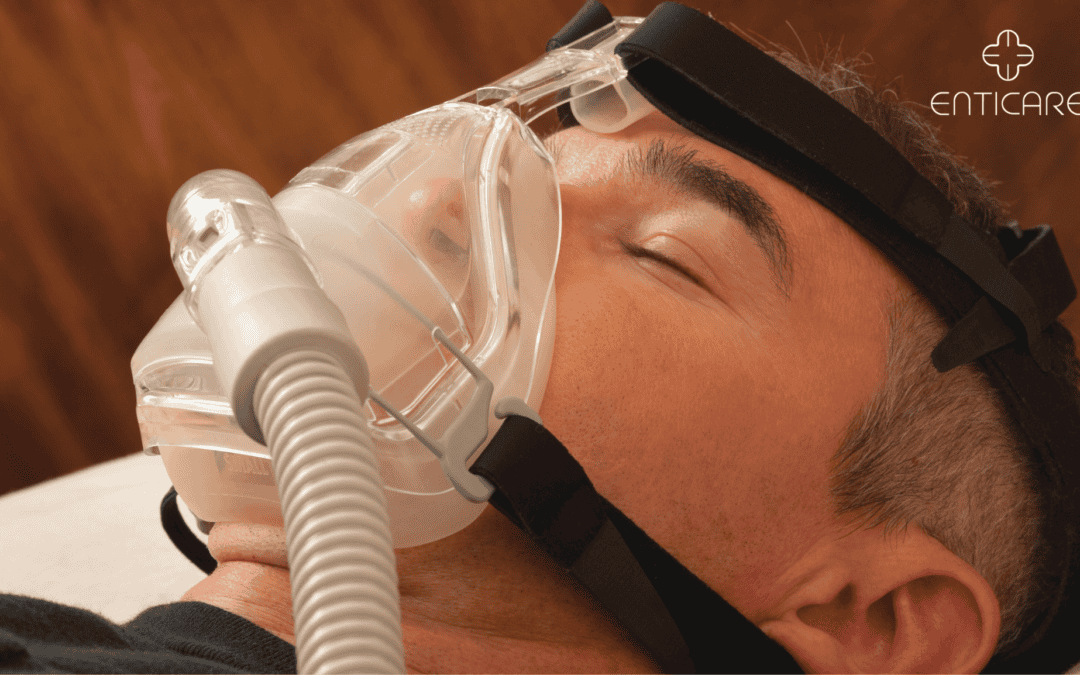The gentle whoosh of your CPAP machine might lull you to sleep, but a nagging question might linger: Should you keep your mouth closed while using a nasal CPAP mask? Understanding the role of mouth breathing and its impact on CPAP therapy is crucial for a good night’s sleep.
Waking up parched after CPAP therapy?
Mouth breathing during CPAP use can be a culprit, leading to dryness and discomfort, when using a nasal style mask.
Unsure about mouth position?
This blog clarifies the importance of keeping your mouth closed with a nasal CPAP mask and offers solutions for achieving a comfortable, effective sleep.
Designed for Nasal Airflow:
A nasal CPAP mask delivers pressurized air directly to your nose, keeping your upper airway open and preventing sleep apnea events. For optimal treatment, it’s essential to breathe solely through your nose.
The Downside of Mouth Breathing:
- Reduced CPAP Effectiveness: Mouth leaks allow pressurized air to escape, weakening the overall pressure and potentially reducing the treatment’s effectiveness.
- Dry Mouth Discomfort: The constant flow of air can dry out your mouth, leading to a parched feeling, irritation, and disrupted sleep.
- Increased Risk of Mask Leaks: Mouth breathing can force air out of the mask, creating leaks that require tightening the straps, potentially leading to discomfort and pressure marks.
Benefits of Keeping Your Mouth Closed:
- Enhanced CPAP Therapy: Ensuring nasal-only breathing maximizes the therapeutic pressure delivered by your CPAP machine.
- Reduced Dry Mouth: Breathing solely through your nose minimizes mouth dryness, promoting a more comfortable sleep.
- Improved Mask Seal: Minimized leaks create a more comfortable fit and ensure optimal treatment throughout the night.
Strategies for Keeping Your Mouth Shut:
- Mask Fit is Paramount: A well-fitting nasal mask minimizes air leaks around the edges, reducing the urge to mouth breathe. Consult your doctor or a sleep specialist for a proper mask fitting.
- Embrace the Chin Strap: A chin strap gently supports your chin, preventing your mouth from opening during sleep. Experiment with different sizes and materials to find what works best for you.
- Address Nasal Congestion: If you experience nasal congestion, it can make nasal breathing difficult and lead to mouth breathing. Talk to your doctor about saline nasal sprays, medications, or allergy management to keep your nasal passages clear.
- Habitual Mouth Breather? Consider your sleeping position when mouth breathing- are you on your back? Consult your doctor about positional awareness and try to avoid sleeping positions that are possibly promoting mouth breathing.
- Practice Makes Perfect: Consciously focus on nasal breathing during the day and before bed. This can help train your body to breathe through your nose naturally while you sleep.
Embrace Nasal Breathing:
Keeping your mouth closed with a nasal CPAP mask is crucial for optimal therapy and a comfortable sleep experience.
Work with your Doctor:
Discuss your concerns about mouth breathing and explore solutions together.
Consistency is key. The strategies mentioned above work best when incorporated into your regular sleep routine.
By prioritizing nasal breathing with your nasal CPAP mask, you can experience a more effective treatment, a comfortable night’s sleep, and wake up feeling refreshed and ready to take on the day! And if you have any questions, don’t hesitate to contact Enticare or call us at 480-214-9000, our expert team is here to assist you every step of the way.

